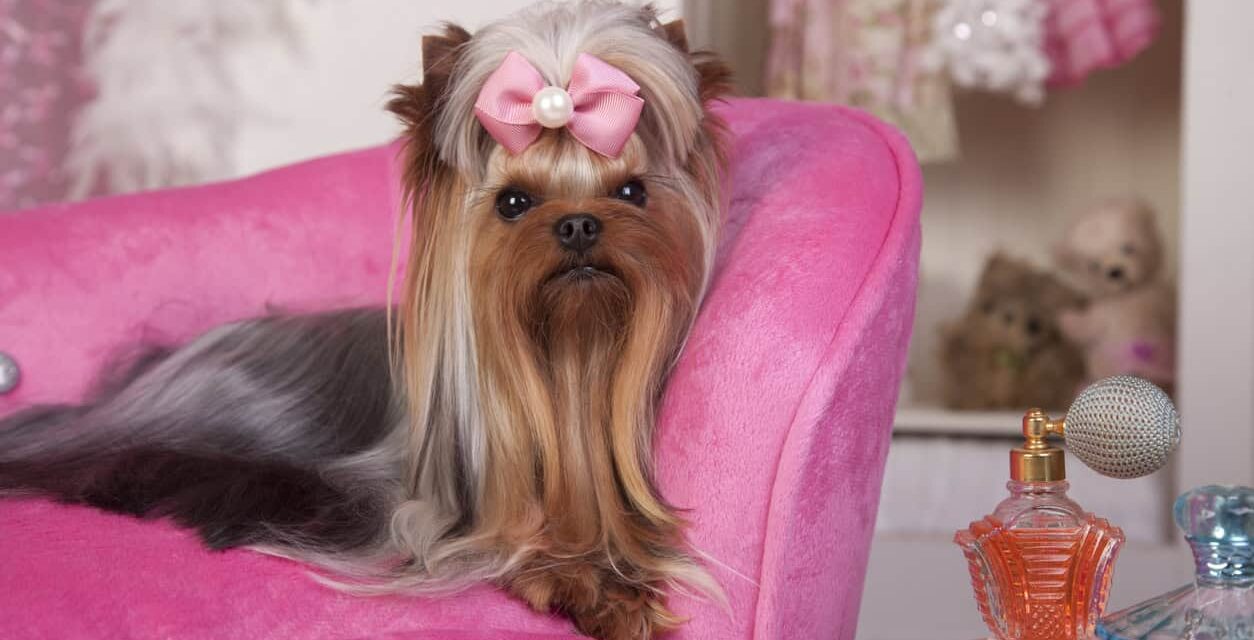iStock.com/Liliboas
By Tom Ryan
Source: retailwire.com, August 2024
In another example of pet pampering perhaps going too far, Italian fashion house Dolce & Gabbana has launched an alcohol-free fragrance mist for dogs called “Fefé” in honor of co-founder Domenico Dolce’s poodle. It costs 99 euros, or $108.
The scent blends “fresh and delicate notes of Ylang Ylang, Musk, and Sandalwood” and comes in a green lacquered glass bottle with a 24-carat gold-plated paw on it. Dolce & Gabanna stated, “It’s a tender and embracing fragrance crafted for a playful beauty routine.”
Pet perfume, often used by groomers, is a growing category, valued at $1.44 billion in 2024 and expected to reach $2.26 billion by 2034, according to research from Quince Markets Insights. The growth comes despite several animal welfare organizations and veterinarians having expressed concerns that strong-scented colognes may interfere with a dog’s heightened sense of smell.
Dolce & Gabbana said Fefé has been certified as suitable for animal use by the Safe Pet Cosmetics program, an independent vet organization in Italy. The cologne is applied directly to a dog’s body — avoiding the nose area — or sprayed onto a pet owner’s hands and then brushed or rubbed into a dog’s fur.
“We’re distributing Fefé right away throughout Europe, in the U.S. and then, little by little, we’ll expand; it’s already available online,” co-founder Stefano Gabbana told Italian newspaper Corriere della Sera. “The market has reacted well; everyone went crazy at the announcement.”
Fefé’s introduction pushes the envelope around what’s acceptable for luxury selling. Prada, Fendi, Louis Vuitton, and Gucci are among numerous luxury brands in recent years that have rolled out pet ranges, including clothing, leashes, carriers, toys, and beds, to capture increasing spend around pets.
Bloomberg Intelligence predicts the global pet industry will expand by more than 45% over the next six years, surpassing $500 billion by 2030. The surge is projected to be driven by increasing pet ownership, particularly in emerging markets like China; robust sales of pet food; strong growth of health and welfare therapies; and the humanization of pets, according to Pet Age.
Some reports indicate that pet spending has recently tapered off as pet adoptions have fallen off their peak during the pandemic. However, luxury pet spending is expected to continue, as exemplified by the strong growth in human-grade pet foods as well as luxury pet hotels and spas.
Many households continue to consider their pets as members of the family and treat them similarly to their children. A recent USA Today survey found that 81% of American pet owners plan to buy holiday or Christmas gifts for dogs, cats, and other pets.
Still, some pet owners remain skeptical of using perfume on their pets. Francesca Castelli, a dog owner from Rome, told The Associated Press, “Especially brand perfumes, it seems to be a very exaggerated process of humanization.”

